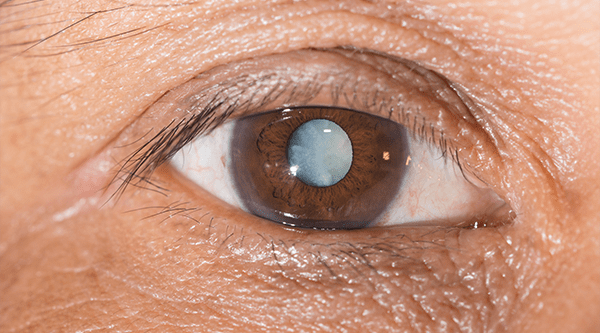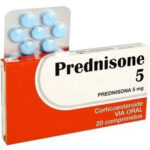What Are The Worst Side Effects Of Prednisone?

Prednisone is a corticosteroid medication that is commonly used to treat a range of conditions that involve inflammation, such as rheumatoid arthritis, asthma, allergies, and inflammatory bowel disease. It works by reducing inflammation and suppressing the immune system, which can help alleviate symptoms such as pain, swelling, and difficulty breathing.
The dosage and duration of treatment may vary depending on the condition being treated, the severity of the symptoms, and the individual patient’s response to the medication.
Prednisone is a widely prescribed medication, and it is estimated that millions of prescriptions are filled each year for this medication. However, the specific number of prescriptions can vary depending on factors such as geographic location, prescribing practices, and the prevalence of conditions that are treated with Prednisone.
While prednisone can be highly effective for managing these conditions, it is also important to note that Prednisone is a powerful medication that can have significant side effects, and it should only be used under the guidance of a healthcare provider.
Here is a more detailed look at the worst side effects of prednisone:
1. Increased risk of infection: Prednisone is known to suppress the immune system, which can make it harder for the body to fight off infections. This can increase the risk of developing bacterial, viral, or fungal infections. In some cases, these infections can be severe or even life-threatening.
Some common signs of infection that you should be aware of include fever, chills, sore throat, cough, and difficulty breathing. If you are taking prednisone and experiencing any of these symptoms, it is important to contact your doctor or healthcare provider right away.
2. Glaucoma and cataracts: Long-term use of prednisone can increase the risk of developing eye problems such as glaucoma and cataracts. Glaucoma is a condition in which the pressure inside the eye increases, which can cause damage to the optic nerve and lead to vision loss. Cataracts, on the other hand, are cloudy areas that form in the lens of the eye, which can also cause vision loss.
The risk of developing these conditions increases with the duration of prednisone use, as well as the dose of the medication. If you are taking prednisone and experiencing any changes in your vision, it is important to notify your doctor or healthcare provider.
3. Diabetes: Prednisone can cause an increase in blood sugar levels, which can lead to the development of diabetes. This risk is particularly high in people who are already at risk for diabetes or who have a family history of the condition.
Symptoms of diabetes include increased thirst, frequent urination, blurry vision, fatigue, and slow healing of wounds. If you are taking prednisone and experience any of these symptoms, it is important to notify your doctor or healthcare provider.
4. Osteoporosis: Long-term use of prednisone can weaken bones, leading to osteoporosis. Osteoporosis is a condition in which bones become weak and brittle, increasing the risk of fractures. This risk is particularly high in postmenopausal women, as well as in people who smoke or drink alcohol.
If you are taking prednisone long-term, your doctor or healthcare provider may recommend regular bone density tests to monitor your bone health. Additionally, it is important to engage in regular weight-bearing exercise and to get enough calcium and vitamin D in your diet.
5. Weight gain: Prednisone can cause fluid retention and increased appetite, which can lead to significant weight gain. This weight gain is often concentrated in the face, neck, and trunk.
If you are taking prednisone and experiencing significant weight gain, it is important to speak with your doctor or healthcare provider about ways to manage your weight, such as through diet and exercise.
6. Mood changes: Prednisone can affect mood and behavior, causing mood swings, irritability, and even depression or anxiety. These mood changes are thought to be related to the effect of prednisone on the brain and nervous system.
If you are taking prednisone and experience any changes in your mood or behavior, it is important to notify your doctor or healthcare provider. They may be able to adjust your dose or recommend other treatments to help manage these symptoms.
7. Adrenal suppression: Prolonged use of prednisone can cause adrenal glands to stop producing cortisol, which is a hormone that is important for regulating the body’s response to stress. This can lead to adrenal suppression, which can cause a range of symptoms including fatigue, muscle weakness, and decreased ability to handle stress.
If you are taking prednisone long-term, your doctor or healthcare provider may recommend a gradual tapering of the medication to avoid adrenal suppression. They may also recommend monitoring adrenal function through blood tests.
8. Increased risk of stomach ulcers: Prednisone can increase the risk of developing stomach ulcers, particularly in people who are already at risk for this condition, such as those who smoke, drink alcohol, or take other medications that can irritate the stomach lining.
If you are taking prednisone and experience symptoms of a stomach ulcer, such as abdominal pain, nausea, vomiting, or blood in the stool, it is important to contact your doctor or healthcare provider right away.
9. Skin thinning and easy bruising: Prednisone can cause thinning of the skin and increased susceptibility to bruising. This is because prednisone can affect collagen production, which is important for maintaining the structure and elasticity of the skin.
If you are taking prednisone and notice increased bruising or skin thinning, it is important to notify your doctor or healthcare provider. They may recommend using topical creams or other treatments to help manage these symptoms.
10. Increased risk of blood clots: Prednisone can increase the risk of developing blood clots, particularly in people who have other risk factors for this condition, such as a history of blood clots, immobility, or obesity.
If you are taking prednisone and experience symptoms of a blood clot, such as pain or swelling in the legs, chest pain, or difficulty breathing, it is important to seek immediate medical attention.
11. Increased risk of cataracts: Prednisone can increase the risk of developing cataracts, which is a clouding of the lens in the eye. This can lead to vision loss and impaired visual function.
If you are taking prednisone long-term, your doctor or healthcare provider may recommend regular eye exams to monitor your vision and check for the development of cataracts.
12. Increased risk of adrenal crisis: Abrupt discontinuation of prednisone can cause an adrenal crisis, which is a life-threatening condition that occurs when the body suddenly stops producing cortisol. Symptoms of an adrenal crisis include severe weakness, dizziness, confusion, and low blood pressure.
If you are taking prednisone and need to stop the medication, it is important to work with your doctor or healthcare provider to develop a gradual tapering schedule to avoid the risk of an adrenal crisis.
Prednisone Alternatives
Prednisone is a powerful medication that can cause significant side effects, especially with prolonged use,. Therefore, it’s important to explore alternative treatments that may be effective for your specific condition. Here are some potential alternatives to Prednisone:
- Nonsteroidal anti-inflammatory drugs (NSAIDs): NSAIDs such as ibuprofen and naproxen can help reduce inflammation and relieve pain. They are often used to treat conditions such as arthritis and menstrual cramps.
- Disease-modifying antirheumatic drugs (DMARDs): DMARDs are a type of medication that can help slow or stop the progression of certain autoimmune diseases, such as rheumatoid arthritis. They work by suppressing the immune system but typically have fewer side effects than Prednisone.
- Biologics: Biologics are a newer class of medications that are often used to treat autoimmune diseases such as rheumatoid arthritis, psoriasis, and Crohn’s disease. They work by targeting specific immune system proteins that play a role in inflammation.
- Natural remedies: Certain natural remedies, such as turmeric, ginger, and omega-3 fatty acids, may have anti-inflammatory properties and may help reduce symptoms associated with inflammatory conditions. However, it’s important to speak with your healthcare provider before starting any new supplements or natural remedies.
It’s important to note that the best alternative to Prednisone will depend on your specific condition and medical history. It’s always best to consult with a doctor or healthcare provider to discuss the best treatment options for you.





